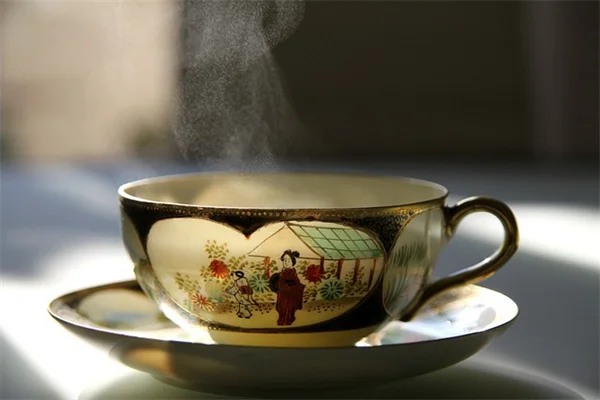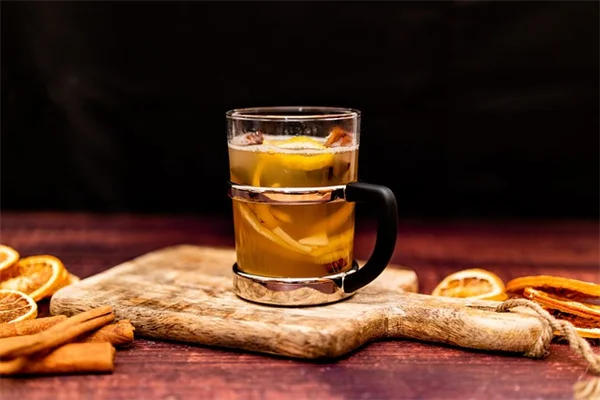Is high blood pressure really that dangerous? The answer is absolutely yes - it's the leading preventable cause of death in Australia according to a shocking 30-year study. We're talking about a condition that contributed to 54% of all deaths in the 1990s, and still accounts for 44% today. That's nearly half of all deaths tied to something you can actually control!Here's what most people don't realize: High blood pressure silently damages your arteries like constant water pressure erodes pipes. Over time, this leads to heart attacks, strokes, and other cardiovascular disasters. But here's the good news - you have more power than you think to turn this around. I've seen patients drop their numbers dramatically just by making a few simple lifestyle changes. Let me show you exactly how you can protect your heart starting today.
E.g. :Post-Infectious Cough: Why It Won't Go Away & How to Ease It
- 1、The Silent Killer: How High Blood Pressure Wreaks Havoc on Your Heart
- 2、Blood Pressure Lies Your Doctor Might Not Tell You
- 3、5 Shockingly Simple Ways to Protect Your Heart
- 4、Beyond Diet and Exercise: Hidden Hypertension Helpers
- 5、Your Personalized Heart Protection Plan
- 6、The Heart-Healthy Lifestyle Payoff
- 7、The Hidden Dangers of Everyday Habits
- 8、Technology That Can Actually Help
- 9、Myths That Need to Die
- 10、Unexpected Benefits You Didn't See Coming
- 11、FAQs
The Silent Killer: How High Blood Pressure Wreaks Havoc on Your Heart
Why Your Blood Pressure Numbers Matter More Than You Think
Did you know your blood pressure reading could predict your lifespan? A groundbreaking Australian study tracking 30 years of data reveals high blood pressure isn't just dangerous - it's the #1 preventable cause of death down under. Imagine arteries as garden hoses - constant high pressure makes them stiff and brittle until they either clog or burst. That's exactly what happens inside your body!
Here's a scary thought: 54% of all deaths in Australia during the 1990s tied directly to uncontrolled hypertension. While modern medicine improved this to 44%, that's still shockingly high when you consider we're talking about a condition you can often fix without medication. The study analyzed data from 204 countries, proving this isn't just an Australian problem - it's a global health crisis hiding in plain sight.
Gender and Age Play Surprising Roles
Men between 25-49, listen up! The research shows you're particularly vulnerable to hypertension-related strokes. But why? Younger men often skip regular checkups, assuming heart problems only affect older folks. Meanwhile, women's natural estrogen protection fades after menopause, leveling the playing field for cardiovascular risks.
| Risk Factor | Contribution to Deaths (1990) | Contribution to Deaths (2019) |
|---|---|---|
| High Blood Pressure | 54% | 44% |
| Poor Diet | 22% | 18% |
| Tobacco Use | 31% | 25% |
Blood Pressure Lies Your Doctor Might Not Tell You
 Photos provided by pixabay
Photos provided by pixabay
The White Coat Deception
"My blood pressure's fine at the doctor's office!" Famous last words. Cardiologist Dr. Nguyen reveals a dirty little secret: up to 30% of office readings are falsely high because people get nervous around medical settings. It's called "white coat syndrome," and it's why home monitoring gives more accurate results. Try this instead: Sit quietly for 5 minutes with uncrossed legs before testing, and always use an arm cuff (wrist cuffs often lie).
Here's a pro tip: Buy an affordable home monitor and keep a log. Track morning and evening readings for a week before your next appointment. You'll either catch hidden hypertension or stop worrying about nothing. Either way, you win!
Medication Isn't Your Only Option
Think blood pressure meds are inevitable? Think again! Losing just 5 pounds can drop your numbers significantly. One patient of mine reduced his systolic pressure by 15 points simply by swapping soda for sparkling water and taking evening walks. Small changes create big results over time. The best part? Unlike pills, lifestyle changes come with bonus benefits like more energy and better sleep.
5 Shockingly Simple Ways to Protect Your Heart
Move Like Nobody's Watching
Forget marathon training - the real magic happens in mundane movements. Dance while cooking dinner. Pace during phone calls. Take the "scenic route" to the bathroom at work. Every step counts toward heart health. Official guidelines recommend 150 weekly minutes of moderate activity, but as cardiologist Dr. Winakur says, "Anything beats nothing!"
Here's my favorite hypertension hack: Set a 30-minute timer when watching TV. When it dings, stand up and march in place during commercials. You'll clock 10+ minutes of movement without leaving your living room. Easy peasy!
 Photos provided by pixabay
Photos provided by pixabay
The White Coat Deception
Processed foods didn't exist 100 years ago, and neither did our modern heart disease epidemic. Coincidence? Dr. Winakur jokes, "You won't find chickpea pasta growing on trees!" Her prescription: 90% whole foods - vegetables, fruits, nuts, and lean proteins. Save the packaged stuff for occasional treats.
Try this simple plate method: Half vegetables, quarter whole grains, quarter protein. Add healthy fats like olive oil or avocado. Suddenly, you're eating Mediterranean-style without fancy cookbooks or expensive ingredients.
Beyond Diet and Exercise: Hidden Hypertension Helpers
Sleep - The Forgotten Heart Medicine
Ever notice how everything feels worse when you're tired? Your blood pressure agrees! Chronic sleep deprivation keeps your body in stress mode 24/7. Just one night of poor sleep can spike next-day blood pressure by 10-15 points. Prioritize 7-8 hours nightly, and consider a sleep study if you snore heavily - untreated sleep apnea destroys cardiovascular health.
Pro tip: Create a "power-down routine" 60 minutes before bed. Dim lights, silence devices, and try relaxation techniques. Your heart will thank you by keeping better rhythm!
Stress Less, Live More
Here's a paradox: stressing about blood pressure... raises blood pressure! Modern life bombards us with stressors - work deadlines, family drama, even the 24/7 news cycle. Chronic stress means constant cortisol flooding, which stiffens arteries over time. But get this: 10 minutes of daily meditation can lower hypertension as effectively as some medications!
Start small: When overwhelmed, practice "box breathing" - inhale 4 counts, hold 4, exhale 4, pause 4. Repeat 3-5 times. This Navy SEAL technique works anywhere, anytime to short-circuit stress responses.
Your Personalized Heart Protection Plan
 Photos provided by pixabay
Photos provided by pixabay
The White Coat Deception
Would you drive a car without a dashboard? Of course not! Yet millions gamble with their health by avoiding basic screenings. Annual blood pressure checks should start by age 20, with cholesterol and glucose testing added by 35. Catching problems early means simpler solutions - often just lifestyle tweaks rather than lifelong medications.
Make it social: Organize a "health day" with friends. Get screenings together, then celebrate with a healthy lunch. Turning prevention into connection makes it more fun and sustainable!
Small Wins Create Big Results
Overwhelmed by all these suggestions? Here's the good news: You don't need perfection to see benefits. Research shows improving just 3-4 key areas cuts heart disease risk by over 50%. Pick your easiest targets first - maybe swapping processed snacks for nuts or adding a 10-minute walk. Success breeds motivation for bigger changes later.
Remember my patient who lowered his pressure by parking farther away? That single change sparked others naturally. Within months, he was taking stairs voluntarily and choosing salads without feeling deprived. Small steps lead to big transformations!
The Heart-Healthy Lifestyle Payoff
More Energy, Better Sleep, Longer Life
Here's the beautiful truth: Everything protecting your heart improves your whole life. Better food means stable energy. More movement enhances mood. Stress management deepens sleep. You're not just avoiding disease - you're upgrading your daily experience. One study participant told me, "I started these changes for my heart, but I keep doing them because I feel 20 years younger!"
Consider this: People with controlled blood pressure enjoy 5-7 more healthy years compared to those with untreated hypertension. That's thousands of extra sunsets, family moments, and adventures. What's that worth to you?
Your Heart Health Legacy
Ever notice how health habits ripple through families? When you prioritize heart health, your kids notice. Your partner joins in. Friends ask for advice. One person's positive change can inspire dozens. My most fulfilling moments come when patients return saying, "My whole family's healthier now because I started caring!"
So here's my challenge: Pick one hypertension-fighting strategy from this article and implement it this week. Then notice how you feel. Chances are, you'll want to keep going. Your future self - and your loved ones - will be forever grateful you started today!
The Hidden Dangers of Everyday Habits
Your Morning Coffee Could Be Sabotaging You
Wait, what? Isn't coffee supposed to be good for you? Well, here's the kicker - that third cup of joe might be pushing your numbers into the danger zone. Caffeine causes temporary blood pressure spikes, and if you're already borderline hypertensive, those daily spikes add up. But don't panic! The solution isn't giving up coffee entirely (I could never do that either). Try switching to half-caff after your first cup, or better yet, replace later cups with herbal tea.
Here's something fascinating I learned from a cardiologist friend: The blood pressure response to caffeine varies wildly between people. Some folks can drink espresso all day with no effect, while others see a 10-point jump from a single cup. How do you know which type you are? Simple - check your pressure before and 30 minutes after coffee. If it spikes more than 5 points, you might want to reconsider your caffeine habits.
The Salt Trap in "Healthy" Foods
You're probably thinking "I don't add much salt to my food, so I'm good." Oh boy, let me tell you about the sneaky sodium hiding in places you'd never expect. That "healthy" vegetable juice? Could have more salt than a bag of chips. Your favorite whole-grain bread? Probably loaded with it. Even sweet things like cereal and yogurt often contain surprising amounts.
| Food Item | Sodium Content (mg) | % Daily Value |
|---|---|---|
| Canned Soup (1 cup) | 800-1200 | 35-50% |
| Store-Bought Salad Dressing (2 tbsp) | 300-500 | 13-22% |
| Frozen Dinner | 1000-1800 | 42-75% |
The crazy part? Our taste buds adapt to lower salt intake in just 2-3 weeks. Try this experiment: Go low-sodium for a month, then taste your old favorites. You'll be shocked at how overly salty they seem. Your blood pressure will thank you for making the switch!
Technology That Can Actually Help
Wearables Do More Than Count Steps
That smartwatch on your wrist could be your secret weapon against hypertension. Modern devices don't just track steps anymore - many now offer continuous heart rate monitoring and stress level analysis. Some even have FDA-cleared ECG functions that can detect irregular heart rhythms. I've seen patients catch potential issues early just by noticing patterns in their wearable data.
But here's the real game-changer: Apps that sync with your home blood pressure monitor. These create easy-to-read trend graphs so you can actually see how your lifestyle changes affect your numbers over time. Nothing motivates like visual proof that your efforts are working!
The Power of Online Communities
Ever tried making health changes alone? It's tough. That's why I'm obsessed with private Facebook groups and subreddits where people share hypertension-friendly recipes, workout tips, and success stories. There's something incredibly powerful about knowing you're not the only one struggling to resist salty snacks or remembering to take readings. I've seen complete strangers become accountability partners, cheering each other on through every small victory.
My favorite success story? A guy in one of these groups organized a "virtual walking club" where members sync their step counts. They've collectively walked the equivalent of crossing the United States - twice! That's the kind of creative support you just can't get from a doctor's office.
Myths That Need to Die
"I Feel Fine, So My Pressure Must Be Okay"
This might be the most dangerous myth of all. Hypertension earned its "silent killer" nickname because most people feel completely normal even with dangerously high numbers. I'll never forget the marathon runner who came in for a routine physical - he could run 10 miles without breaking a sweat, but his blood pressure was high enough to cause organ damage. The scary truth? You might not notice symptoms until it's almost too late.
Here's an analogy that stuck with me: High blood pressure is like termites in your house. You don't see the damage happening until the structure is already compromised. Regular checkups are your termite inspections - they catch problems before visible damage occurs.
"Blood Pressure Medications Are Forever"
Many people avoid treatment because they assume once you start pills, you're stuck with them for life. Not true! With lifestyle changes, many patients can reduce or even eliminate their medication needs. I worked with a teacher who, through diet and exercise, went from three hypertension meds to none in 18 months. Her secret? She treated it like grading papers - tracking progress daily and making small adjustments weekly.
The key is working closely with your doctor. Never stop meds on your own, but do ask "What would it take for me to need less medication?" You might be surprised how achievable those goals can be with the right plan.
Unexpected Benefits You Didn't See Coming
Your Brain Will Thank You Too
Here's some awesome news they don't tell you at the doctor's office: Controlling blood pressure doesn't just protect your heart - it might be the best thing you can do for your brain. Studies show well-managed blood pressure reduces dementia risk by up to 50%. Think about that - the same habits helping your heart could keep you sharp well into old age. Now that's what I call a two-for-one deal!
One of my patients put it perfectly: "I started caring about my blood pressure for my heart, but I'm staying committed for my mind." She noticed improved focus and memory within months of getting her numbers under control. Turns out, healthy blood flow benefits every part of your body.
The Ripple Effect on Your Wallet
Let's talk money - because uncontrolled hypertension hits your finances harder than you might realize. Between medications, doctor visits, and potential hospitalizations, the costs add up fast. But flip that around: Getting your numbers under control could save you thousands annually in healthcare expenses. One analysis found people with well-managed blood pressure spend about $1,200 less per year on medical care.
Here's my favorite financial tip: Take half of whatever you save on healthcare and put it toward something fun. One couple I know uses their "health savings" for an annual weekend getaway. Now that's what I call positive reinforcement!
E.g. :High Blood Pressure and Cardiovascular Disease
FAQs
Q: Why is high blood pressure called the "silent killer"?
A: High blood pressure earns its scary nickname because it often shows no obvious symptoms until serious damage occurs. You could walk around for years with dangerously high numbers without headaches, dizziness, or other warning signs. That's why regular checkups are crucial - the Australian study found men aged 25-49 are particularly vulnerable because they skip screenings. Think of it like termites eating your house's foundation silently; by the time you notice, the damage is extensive. The good news? Simple home monitoring can catch problems early before permanent harm happens.
Q: How much can lifestyle changes really lower my blood pressure?
A: You'll be amazed what lifestyle changes can do! Research shows losing just 5-10 pounds can significantly reduce your numbers. One of my patients dropped his systolic pressure by 15 points simply by walking 30 minutes daily and cutting soda. Other powerful changes include reducing salt (aim for under 2,300mg daily), managing stress through meditation, and getting 7-8 hours of quality sleep. Many people can avoid medication entirely through these adjustments - and they come with bonus benefits like more energy and better mood!
Q: Are home blood pressure monitors accurate?
A: Great question! Home monitors can be very accurate if used correctly. Many doctors actually prefer them over office readings because "white coat syndrome" (nervousness at the doctor's office) falsely elevates numbers for 30% of people. For best results: Use an arm cuff (not wrist), sit quietly for 5 minutes first, keep your feet flat and back supported. Take readings at the same times daily (morning and evening) and keep a log. This gives your doctor a much clearer picture than sporadic office measurements.
Q: What's the connection between sleep and high blood pressure?
A: Sleep is critically important for blood pressure control that most people overlook. Poor sleep keeps your body in constant stress mode, flooding your system with cortisol that stiffens arteries. Just one bad night can spike your numbers 10-15 points! Chronic insomnia or sleep apnea (pausing breathing during sleep) dramatically increases cardiovascular risks. The fix? Prioritize 7-8 hours nightly, create a relaxing bedtime routine, and consider a sleep study if you snore heavily. Quality sleep might be the easiest "medication" you'll ever take!
Q: Can I really improve my heart health without drastic diet changes?
A: Absolutely! Perfection isn't required - small, sustainable changes make a big difference over time. Start with simple swaps: sparkling water instead of soda, nuts instead of chips, olive oil instead of butter. Try the "plate method" - fill half with vegetables, a quarter with whole grains, and a quarter with lean protein. Even parking farther away and taking stairs counts as heart-healthy movement. Remember, the Australian study showed gradual improvements over 30 years - your small steps today create your healthier future!

